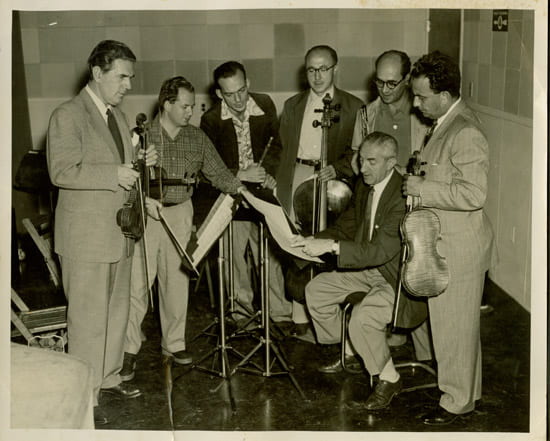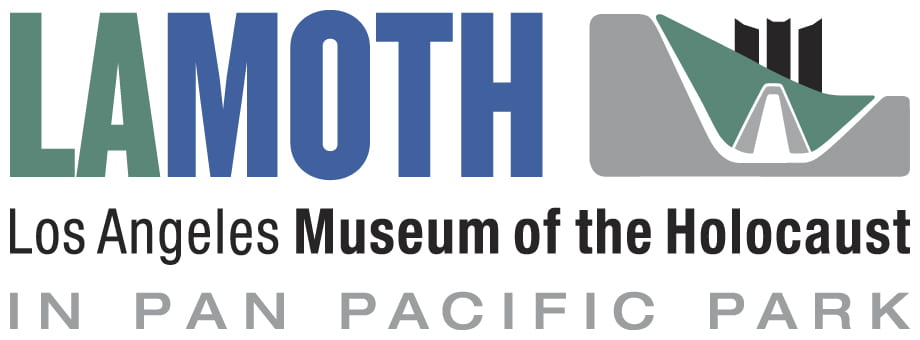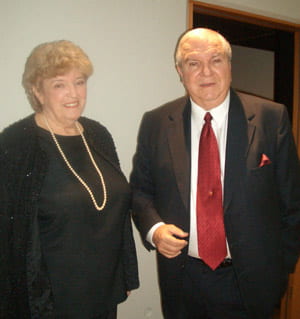On Saturday, August 26, 2017, the Los Angeles Museum of the Holocaust, Consulate General of the Republic of Poland in Los Angeles and USC Polish Music Center present an afternoon of events in honor of the 40th anniversary of the death of composer Henry Vars. First, at 2:30 p.m., there will be a Holocaust Survivor Talk with the children of Henry Vars—Diana Mitchell & Robert Vars (pictured at right)—moderated by Dana Schwartz. Then, at 4:00 p.m., there will be a Vars Concert by the Darek Oleszkiewicz Trio—bassist Darek “Oles” Oleszkiewicz, pianist Kuba Stankiewicz and drummer Tina Raymond (below center)—featuring hit Polish and American tunes by Vars. Space is limited and reservations are required (for the concert only). RSVP here: lamoth.ticketleap.com/henryk-wars.

Along with fellow USC Thornton faculty member and Grammy Award-winning percussionist Peter Erskine, Darek Oleszkiewicz and Kuba Stankiewicz recently released an album entitled The Music of Henryk Wars (Warner, 2017), featuring arrangements of many classic Vars tunes. Click on the links to hear them on Youtube: Miłość Ci wszystko wybaczy [Love Forgives All] (1933); Ach, jak przyjemnie [Ah! It’s So Pleasant] (1938); Nic o Tobie nie wiem [I Know Nothing about You] (1939); Sleep My Child (1948); I Remember (1949); Flipper (1963).

Henryk Warszawski was in born in Warsaw, Poland, in 1902. After graduating from the Warsaw Conservatory of Music in 1925, Warszawski began to compose and arrange popular tunes, working with a variety of performers, at first mostly in a cabaret setting. By the very end of the 1920s he started to work in film, scoring the first Polish “talkie,” Na Sybir (To Siberia). Adopting the stage name “Wars,” he became a prolific film composer. More than a third of all Polish films made in the 1920s and 1930s were scored by Wars, and many of his screen melodies ended up on singles’ hit lists. Most songs written by him in the 1930s still enjoy the timeless popularity accorded to the show tunes of George Gershwin, Cole Porter, and Irving Berlin in America.
During World War II, Wars was sent to the front. He was taken prisoner, but escaped a POW train transport and reached Lwów (then under Soviet occupation) in 1940. Meanwhile, his wife and two children were forced to leave their apartment in Warsaw and move into the Warsaw Ghetto. In Lwów, Wars gathered other refugee musicians, organizing a musical theatre performing group and touring the Soviet Union. In early 1941, Wars was able to obtain official papers from the Soviet authorities allowing his wife and children to leave the Warsaw Ghetto. When they got to Lwów, they were told Wars was on tour. As Germans began to bomb Lwów, Wars’ wife and children boarded trains heading east and began a long trek to find him and be reunited.

In 1947, Wars and his family left for the United States. Changing his name to “Henry Vars,” he settled in Los Angeles. Initially Vars joined film studios as arranger, copyist, conductor and the anonymous composer of numerous film cues. Later he composed a number of film scores, including several Westerns made by, among others, John Wayne’s production company. His most famous achievement was the soundtrack for feature film Flipper as well as music for the follow-up television series based on the same story.
Vars’ most enduring Polish hit, “Miłość ci wszystko wybaczy” [Love Forgives All] remains one of the most popular Polish songs of the past 50 years and was used in Steven Spielberg’s Schindler’s List.
Saturday, August 26, 2017 | 2:30 PM –Talk & 4:00 PM – Concert
Henry Vars Anniversary Jazz Concert & Holocaust Survivor Talk
feat. speakers from the Vars family & the Darek Oleszkiewicz Trio
Los Angeles Museum of the Holocaust in Pan Pacific Park
100 The Grove Dr, Los Angeles, CA 90036
FREE Admission (donation to the Museum suggested)
Info & RSVP (concert only): lamoth.ticketleap.com/henryk-wars.


